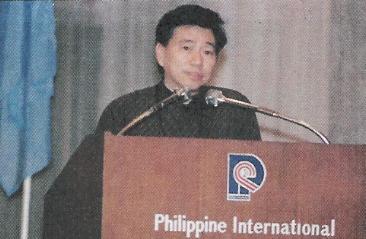Introduction and UNESCO's Mandate
Page 1
Yamousoukro and Seville Statement
Page 2
Origins and Executive Board Adoption
Pages 3 - 4
Launching the Programme: El Salvador and Roundtable
Pages 5 - 6 - 7
1993 General Conference
Page 8
National Projects
Pages 9 - 10
Programme Unit
Page 11
Toward a Global Scope
Pages 12 - 13
Transdisciplinary Project and Human Right to Peace
Pages 14 - 15 - 16
1997: A New Approach
Page 17
UN General Assembly Resolutions
Page 18
Resolution for International Year
Page 19
Declaration and Programme of Action
Pages 20 - 21
Resolution for International Decade
Pages 22 - 23
Training Programmes
Page 24
Global Movement
Pages 25 - 26
Publicity Campaign
Pages 27 - 28
Decentralized Network
Pages 29 - 30
Manifesto 2000
Page 31
Use of Internet
Pages 32 - 33
Future of the Culture of Peace
Pages 34 - 35 - 36 - 37 - 38
One other United Nations initiative that had still not been implemented as of the time of this writing in 2003 concerns a systematic initiative for culture of peace training. Training had been a key component of our plans for the culture of peace since the initial working document of December 11, 1992, the proposal of cross-conflict participation in 1993 and the 1994 background analysis that I prepared on the UNESCO literacy programmes as a precedent for the culture of peace. This is reflected in a number of notes from me to my chief, Leslie Atherley, during the early years of the culture of peace programme. A network of "local and regional centers and mechanisms for capacity-building in conflict-mediation" was included among the recommendations of the Second International Forum for a Culture of Peace in the Philippines 26-30 November 1995. Following this a proposal was included in Document A/51/395 submitted to the General Assembly 23 September 1996 for a "global training effort for non-violent social change that transforms conflict into cooperation for human development" for which "UNESCO is prepared to take the lead". A year later, in the preparation of the draft UN Programme of Action for a Culture of Peace in 1997-1998, I consulted with leading proponents of training in the UN system, including the psychologist Connie Peck at UNITAR and Gay Rosenblum-Kumar at (DESA) the Department of Economic and Social Administration. Based on their advice two paragraphs concerning training were included in the draft Programme of Action in document A/53/370 (see Annex V), one of them calling for "Local and regional training centres for conflict transformation … established within the framework of existing offices of the United Nations system throughout the world … "

delivered by rapporteur Toh Swee-Hin
Unfortunately, the proposal for training centres was disputed by some Member States during the "informals" on the Programme of Action, in particular on 6 May 1999. The European Union replaced it with a proposal for "strengthening the ongoing efforts of the United Nations system aimed at training and education in the areas of conflict prevention, peaceful settlement of conflicts and post-conflict peace-building", presumably considering that the establishment of new centres would be too costly. The other paragraph about training was retained in the final section of A/53/243 concerning international peace and security, but with strong caveats: "encouraging training in techniques for the understanding, prevention and resolution of conflict for the concerned staff of the United Nations, relevant regional organizations and Member States, upon request, where appropriate "
I tried to develop a training initiative by another means, drafting a training proposal document for the ACC (United Nations Administrative Committee of Coordination), the committee that brings together the heads of UN agencies and many of its major departments. However, the draft document, dated 7 September 1998 and following an outline presented 28 August, was never submitted to the ACC.
 |
 |
 |